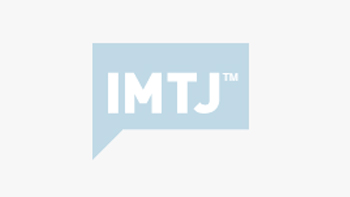The SFU Medical Tourism Research Group in Canada has released details of a study on medical tourism in Bangalore, India; ‘An Overview of the Medical Tourism Industry in Bangalore, India’. Bangalore is the capital city of the state of Karnataka, one of the four southern states of India. Bangalore has 15 major hospitals that cater to international medical travel. Some have specialty services like orthopedics, oncology, or reproductive health, but most are multi-specialty hospitals. Apollo Hospitals Bangalore serves both national and international patients, but a separate wing has an exclu
The SFU Medical Tourism Research Group in Canada has released details of a study on medical tourism in Bangalore, India; ‘An Overview of the Medical Tourism Industry in Bangalore, India’.
Bangalore is the capital city of the state of Karnataka, one of the four southern states of India. Bangalore has 15 major hospitals that cater to international medical travel. Some have specialty services like orthopedics, oncology, or reproductive health, but most are multi-specialty hospitals.
Apollo Hospitals Bangalore serves both national and international patients, but a separate wing has an exclusive international patient focus. The hospital has in-house translators for Arabic, and other languages are outsourced to translation agencies. It provides guesthouses within the hospital premises for patients and their carers, with additional housing nearby. Medical tourists do not form a major part of its revenues, although the number of patients is increasing each year, with 1,000 patients in 2013, primarily from the Middle East and Africa, particularly, Central Africa.
Columbia Asia has two hospitals in Bangalore. International patients primarily receive orthopedic, cardiac and ear, nose and throat services. It does not focus exclusively on medical tourism. Although there is no separation between the local and the international wards, it charges higher prices for foreign patients. The majority of patients come from Kenya, Nigeria, and Ethiopia, but it also gets patients from Oman, Iraq, Bahrain, Sri Lanka, Bangladesh, Maldives, and Myanmar. Medical tourists comprise 10 to 12% of the total, and it treats between 25 and 300 foreign patients per month. It offers specific concierge services to patients to help them with their visas and registration.
Fortis Healthcare has five hospitals in Bangalore. Patients come from 55 countries, with 50% from Africa, 6 to 7% from the United Arab Emirates, and 3 to 4% from the UK, US, and Australia. The group has in-house Arabic translators, and gets 40 to 50 medical tourists per month, comprising 22% of all patients and 20% of all revenues.
For Mallya hospital most of the non-resident Indian patients come from the Middle East. The patients generally come with English speaking attenders, but the hospital sometimes experiences problems with Arabic patients who come without such attenders and who are unable to communicate in English. It does not provide any tourism related services.
Manipal hospital is one of the leading hospitals in Bangalore catering to international medical travel. It has in-house translators for Arabic and Swahili. For other languages it hires the services of an outside agency. The hospital offers concierge services to medical tourists and provides accommodation for caregivers. It does not have a separate wing for medical tourists, but an exclusive international wing is being planned. It has a different price structure for domestic and international patients, so international patients pay 30% more. There has been an increase in the number of international patients, mainly from Africa, the Middle East, and the Maldives. It has also had a few patients from Canada, USA and the UK.
Narayana Hrudayalaya gets medical tourists, primarily from Bangladesh, the Middle East, Africa, and Malaysia. 15 to 20% of patients are medical tourists, 500 patients per month. Medical tourism has seen an increase of 30% in the last year. In-house translation services are available for French and Arabic, all other languages require outside agencies to be hired. The hospital has an in-house travel agency, provides concierge services, and has its own accommodation; in addition to this it has ties with hotels and airlines.








 ©2024 All rights reserved LaingBuisson
©2024 All rights reserved LaingBuisson 


